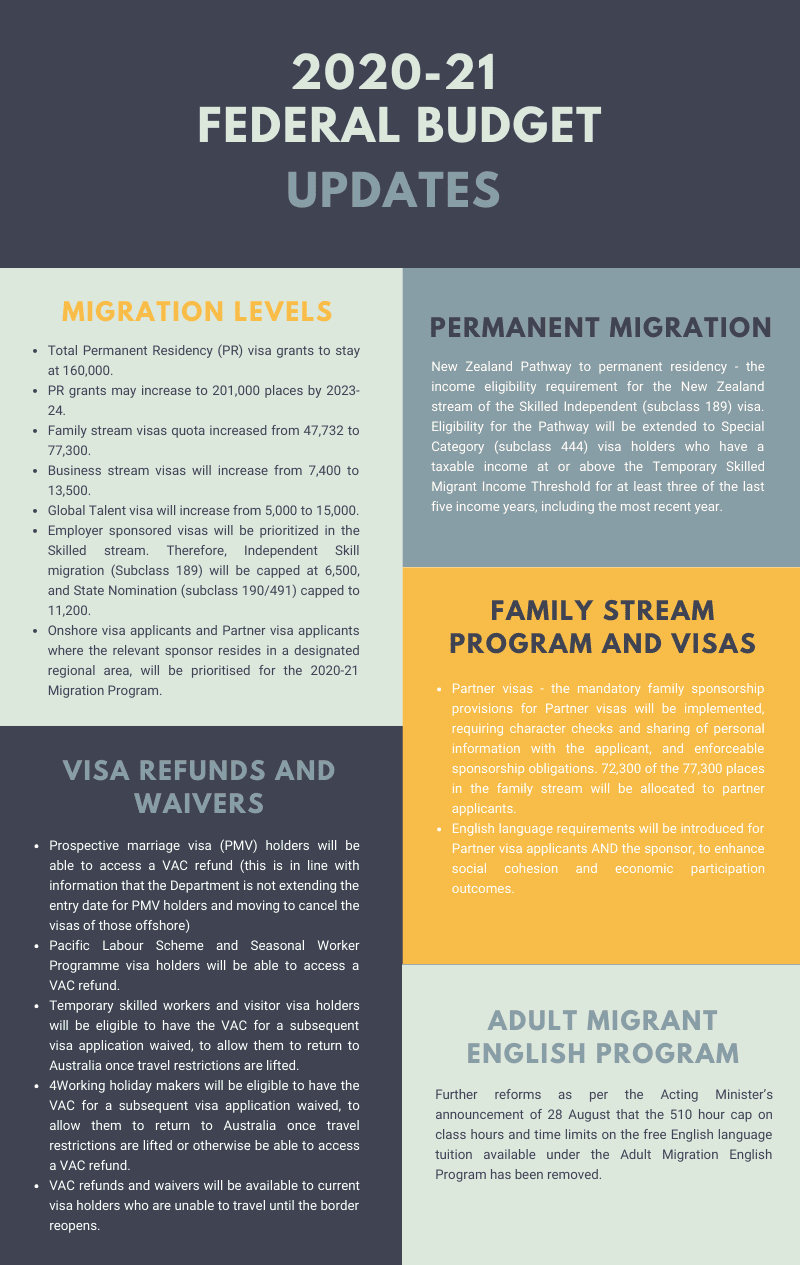New visa concessions offer permanent residency pathways for select skilled migrants and post-study visa rights for returning international students
On 25 November 2021, Minister for Immigration, Citizenship, Migrant Services and Multicultural Affairs Alex Hawke announced new special temporary concessions for around 200,000 highly skilled visa holders in Australia.
These positive changes will take affect gradually from 1 December 2021 to 1 July 2022 and will primarily benefit the following visa holder groups:
- Temporary Skills Shortage visa (subclass 482) (TSS) and Legacy TSS (subclass 457) visa
The concession presents an exciting opportunity for 20,000 skilled migrants who remained in Australia during the pandemic, to be eligible for permanent residency. This will apply to:
- primary holders of the TSS (short-term stream) who will no longer be subject to the two-year stay limitation in Australia; and
- primary visa holders of the now discontinued subclass 457 visa who previously did not meet the age cap.
- Skilled Regional (provisional) visa (subclass 489, 491 and 494)
Current and expired visa holders of the skilled regional provisional visas, including the 9,000 holders who have remained overseas and unable to travel to Australia due to COVID border restrictions, will now be able to apply for a visa extension; offering additional time to meet the regional work requirements for a permanent residency application.
- Temporary Graduate visa (subclass 485)
The new concessions delivers targeted measures in support of Australia’s international education sector by awarding further study and post-study visa rights for students returning in the 2022 academic year including:
- 30,000 current and former subclass 485 visa holders, whose visas expired on or after 1 February 2020 and unable to enter Australia due to border restrictions, will be able to seek a replacement subclass 485 visa to remain in Australia to live, study or work after graduation;
- The stay period for students completing a masters by coursework will be extended permanently to three years to match that of masters by research graduate;
- Vocational Education and Training (VET) sector graduates will also be receiving a two-year Subclass 485 visa.
- Students who spent time completing online studies while offshore will continue to have their study recognised in meeting qualification requirements for the subclass 485 under the extension of existing measures; and
- Streamlined application processing with the removal of the skills occupation list nomination requirements for the subclass 485 from 1 July 2022.
TANG LAW is pleased to hear of the Government’s continued recognition of skilled migrant workers and the return of international students to Australia in support of our COVID economic recovery efforts coming into the new year.
The Migration Team of TANG LAW has significant experience in preparing and lodging a variety of visa applications. If you would like to see advice on your immigration options, give us a call today and we can help you find the best pathway for your migration journey to Australia.







